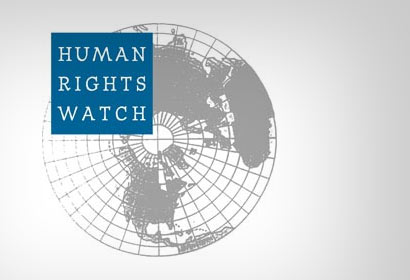Sri Lanka urged to adopt task force’s proposals

Sri Lanka’s government should promptly implement recommendations on transitional justice proposed by the Consultation Task Force (CTF) in a report released on January 3, Human Rights Watch said today.
The report reflects the first broad survey of Sri Lankan citizens on their aspirations for truth and justice, as called for by the October 2015 resolution of the United Nations Human Rights Council (UNHRC).
Key among the task force’s recommendations is the creation of a war crimes court comprised of both international and national judges and other officials, with no time limit on its jurisdiction. Support for this court included ethnic Sinhalese, whose population suffered thousands of enforced disappearances three decades ago for which there has been no accountability.
The task force also recommended a countrywide response to disappearances, financial and symbolic reparations, a constitutional and political settlement, resolution of longstanding land disputes, and attention to psychosocial needs.
“The task force report is remarkably comprehensive and clear in setting out the concerns and needs expressed by Sri Lankans across all communities on the transitional justice process,” said Brad Adams, HRW Asia director. “The government should now own the report’s recommendations and set out a framework for putting them into action, in line with its pledges at the Human Rights Council.”
The Consultation Task Force was formally appointed in February 2016, and began receiving submissions in April 2016 on the proposed mechanisms outlined in Human Rights Council Resolution 30/1, in which the government promised to deliver justice, accountability, and reconciliation in the aftermath of Sri Lanka’s 26-year-long civil war.
The task force, aided by civil society representatives, received 7,306 submissions from the Sinhalese, Tamil, Muslim, and other communities, as well as the security services during the course of their hearings.
The CTF concluded its consultations in August 2016. The task force reported that there had been no government interference or attempts to impede their work, and that the report reflected the views of all 11 members. In a news conference held after the report’s release, CTF members noted that concerns about justice and accountability were raised both in the country’s north and south by many in all communities.
Sri Lanka is on the March 2017 agenda of the Human Rights Council, where High Commissioner for Human Rights Zeid Ra’ad Al Hussein is expected to report on Sri Lanka’s compliance with the resolution.
“This will include the government’s willingness to promptly implement the CTF report recommendations. However, the immediate response by senior officials has been disappointing,” the New York-based human rights group said.
Justice Minister Wijedasa Rajapaksa and Health Minister Rajitha Senaratne both separately ruled out the participation of foreign nationals on the special court, while State Finance Minister Lakshman Yapa Abeywardene said that President Maithripala Sirisena rejected the inclusion of foreign judges and would not allow the government to prosecute “war heroes.”
The cabinet spokesperson claimed that Al Hussein had agreed that there should be no foreign involvement in the court during a previous meeting – a claim that Al Hussein himself immediately rejected.
HRW says that the report recommendations also contain important confidence-building measures that the government could adopt immediately. These include a robust victim-witness protection law, meaningful outreach by the government across all communities, symbolic gestures to allow public grieving and memorialization, and a minority rights commission.
“The Sri Lankan government took the bold step of agreeing to a multi-ethnic task force for broad consultations on transitional justice,” Adams said. “Now that the task force has listened to the country, it’s crucial that the government doesn’t drop its key recommendations. The government should recognize that its commitments were not only to concerned governments in Geneva, but to its own citizens seeking justice and reconciliation after a terrible war.”
(Ada Derana)
Latest Headlines in Sri Lanka
- Shiranthi Rajapaksa summoned to FCID on February 3, 2026 February 1, 2026
- Sri Lanka PM calls for education reform to strengthen nation February 1, 2026
- Sri Lanka revises fuel prices from February 1, 2026 January 31, 2026
- Sri Lanka declares essential services to ensure recovery after Cyclone Ditwah January 31, 2026
- Sri Lanka disburses Rs. 50,000 relief to 70% of Cyclone Ditwah victims January 31, 2026



The UNHRC has no mandate to request the GOSL to implement any of the recommendations made by its task force. They request the GOSL to use it as a guideline and nothing beyond. Futher the GOSL could carry out a joint investigation as opposed to bogus fact UNHRC fact finding missions. Further the GOSL should insist on joint operations with government. Finally the UNDP operations in sri lanks should be open and reports open to the public for i suspect there is a lot going on outside their mandate